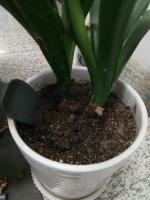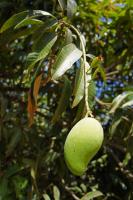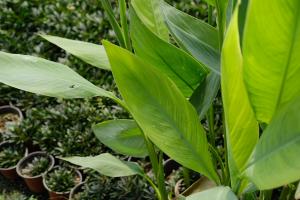Can Plants Live off Ocean Water?
The world's oceans are vast and cover over 70% of the planet's surface. Despite this, only a very small percentage of the Earth's plants are capable of living off ocean water. This is because the water in the ocean is highly saline and contains many minerals and chemicals that can be toxic to plants.
Why Can't Plants Live off Ocean Water?
One of the primary reasons that plants cannot live off ocean water is because of its high salt content. While most plants require some minerals and salts to grow and thrive, the concentration of salt in ocean water is far too high for most plants to tolerate. When plants absorb salt from the soil, they can regulate the amount they take in. However, absorbing salt from ocean water is much more difficult, as they are unable to control the concentration of salt in the water.
In addition, ocean water also contains many other chemicals and minerals that can be toxic to plants. For example, many types of algae and other marine plants have developed specialized ways to detoxify heavy metals such as zinc, copper, and mercury, but most land-based plants are not able to do so.
Can Any Plants Live off Ocean Water?
While most land-based plants are unable to survive on ocean water, there are a few exceptions. Some species of mangrove trees, for example, have developed specialized root systems that enable them to filter out salt from the water they absorb. Other plants, such as certain types of seaweed and algae, have adapted to live in ocean water and can thrive in high salt concentrations.
Additionally, some plants can grow in areas where fresh water mixes with salt water, such as estuaries and salt marshes. These plants are adapted to tolerate some salt but cannot survive on pure ocean water.
What are the Implications of Plants Unable to Live off Ocean Water?
The fact that most plants cannot live off ocean water has important implications for the planet. With increasing pressure on freshwater resources, seawater desalination has become an attractive option for many regions. However, the process of desalination is still energy-intensive and expensive, which means it might not be the most practical solution in the long run. Therefore, finding plant species that can survive on ocean water could be a game-changer.
Researchers are actively studying ways to develop plants that are more tolerant to salt, which could help to increase food production in coastal areas, reduce water usage in agriculture, and even aid in the production of biofuels. Developing such plants is a challenging task and requires a deeper understanding of plant biology, but it has enormous potential benefits.
In Conclusion
While most plants cannot survive on ocean water, there are a few exceptions. The high salt concentration in ocean water makes it a difficult environment for most plants, but some species of mangrove trees, seaweed, and algae have adapted to survive in the ocean. Developing plants that are more tolerant to salt could be a key to reducing water usage and increasing food production in coastal areas in the future.

 how many times do yo...
how many times do yo... how many planted tre...
how many planted tre... how many pine trees ...
how many pine trees ... how many pecan trees...
how many pecan trees... how many plants comp...
how many plants comp... how many plants can ...
how many plants can ... how many plants and ...
how many plants and ... how many pepper plan...
how many pepper plan...





























